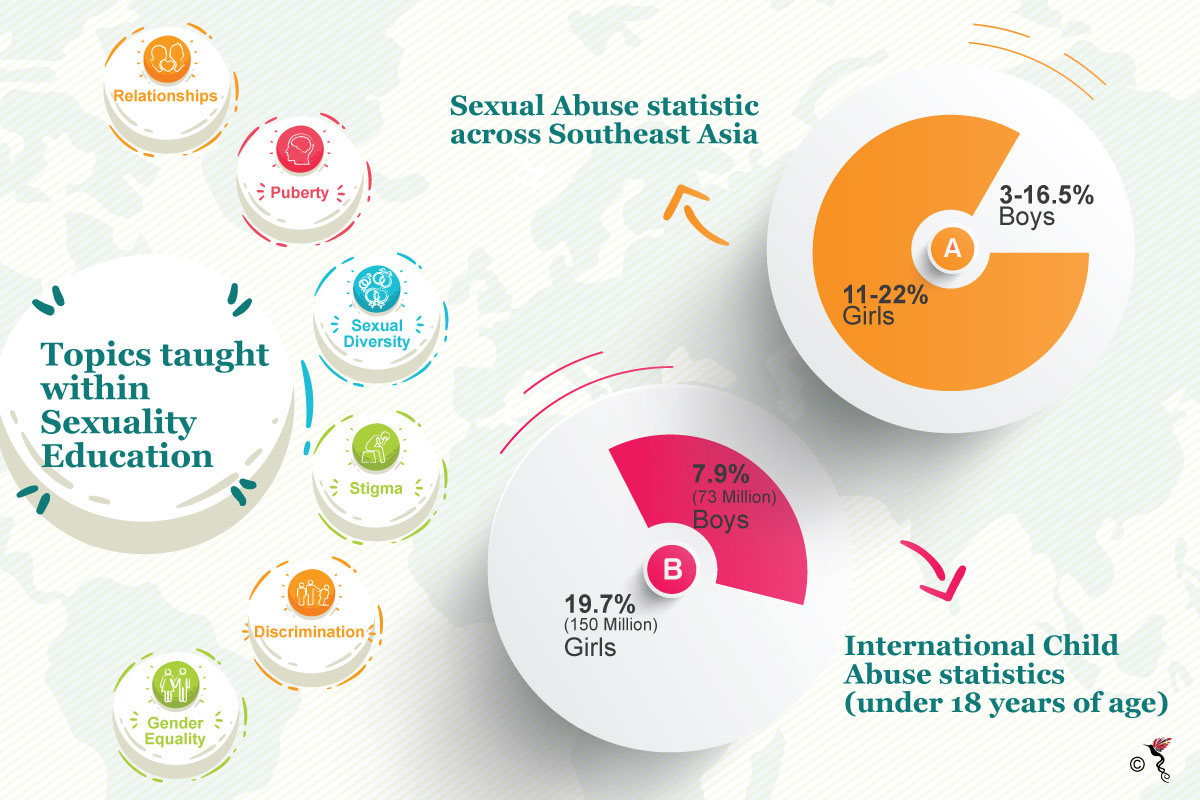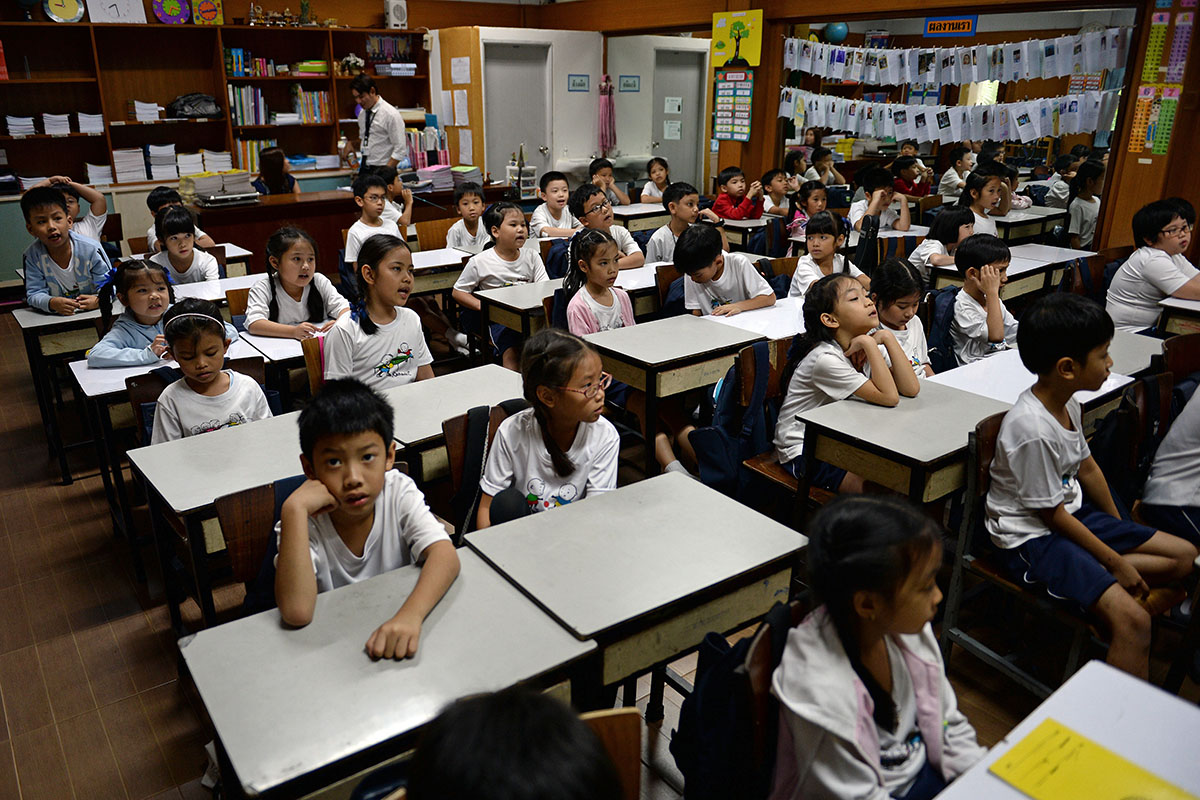Whitney Houston, one of the world’s most prolific singer, actress and producer of our time, once said, “I believe that children are our future. Teach them well and let them lead the way.” However, are we truly doing enough to safeguard our children and protect them from harm?
According to a recent global data conducted by UNICEF, child sexual abuse was experienced by one in every five females and one in every eleven males across the world. In Southeast Asia alone, 11 to 22 percent of girls and three to 16.5 percent of boys were sexually abused and harassed. This prevalent increase in child sexual abuse stems from a multitude of issues, particularly the lack of education or awareness on the topic.
Sexuality education within ASEAN is presently in the developmental stage where youths are only taught the bare necessities when it comes to sex-related topics under the current curriculum. From a cultural perspective, conversations about sexuality is also considered a taboo, even more so when it involves exposing children to the topic. The common argument against providing sexuality education to children and young adults centres on the fact that it is seen as challenge to the more reserved Asian cultures and it is not something that needs to be discussed openly. At the same time, parents worry that if they teach their children about sex, it will encourage them to have sex at a young age. This is then supported by the myth that if one teaches their children about sex at a young age, that it will encourage them to practice having sex. This is indeed a mere myth that has been dispelled by researchers, and according to a report by UNICEF, has been proven that children armed with information regarding sex education have fewer partners and become sexually active much later in life, than those without.

Information on sexuality education and sexual abuse in Southeast Asia.
Sexuality Education: What is it really about?
Sexuality education does not only include topics regarding sex alone, however it makes up a huge portion the subject. The ignorance and misinformation surrounding the topic disallow children from learning about the other important factors that arise with information about sexuality. Ideally, sexuality education should include topics such as dealing with relationships, puberty, sexual diversity, stigma surrounding sexuality, sexuality based discrimination and gender equality.
The topics covered within sexuality education are meant to embolden and empower children to understand the changes their bodies are going through. It also helps them to learn how to deal with discriminatory thoughts and cultural stigma, stereotypes in regards to femininity and masculinity, as well as building self-esteem. The education should also be tailored to them in a format that is age appropriate, engaging and comforting enough to enable a two-way discussion.
Currently, UNESCO Bangkok will be working alongside the Asian Forum of Parliamentarians on Population and Development (AFPPD) to improve sexuality education across Asia-Pacific. The main goal of which is to recognise the importance of advancing comprehensive sexual education (CSE) and allowing youths to make informed decisions on their sexuality and relationships.
While sexuality education in ASEAN nations is challenged by taboo and conservative cultural values, it is crucial to create a platform to spread sexuality-related information to a mass audience, especially to children residing in isolated areas, in order to keep them informed. At the same time, Durex in Malaysia and Planned Parenthood in Indonesia are engaging in open discussions by uploading videos onto their social media channels as well as hosting events to educate the general public on the importance of sexuality education. Meanwhile, the region has a long way to go in regards to educating children on sexuality-related topics, but at least we could all agree that they need to be better prepared to face the society.
Recommended stories:
